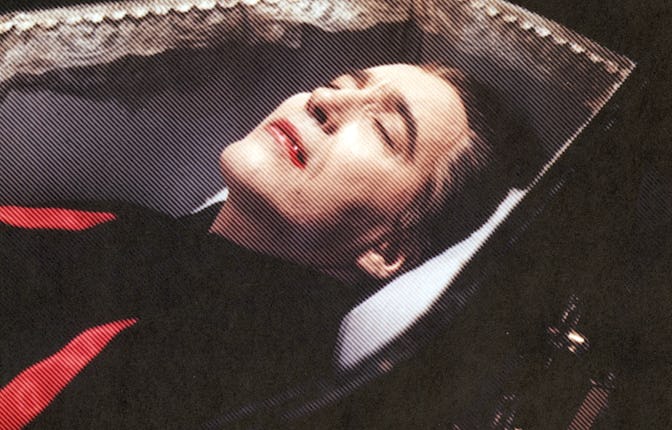Time to embrace your inner vampire and sleep in total darkness
A new study suggests that sleeping with any light isn’t great for your health.

I assumed that my love of darkness — especially a totally dark bedroom at lights-out — was just some sort of goth preference, a holdover from my teen love of vampires. But science backs me up; it turns out that light doesn’t just make it harder to fall asleep, but it can affect your health in negative ways too.
The small new study, which was published this week in the medical journal PNAS, was conducted by researchers at Northwestern University’s School of Medicine. Twenty participants slept in a laboratory, once for three nights and once for two, with various levels of light. Their heart rate, insulin and glucose levels were measured throughout the study. Participants were given rooms for the duration of each of their stays and their meals and sleep schedules were standardized.
What researchers found was that individuals’ heart rates were higher when they were sleeping in even dimly lit rooms. Although an increase in heart rate may seem like no big deal, it’s a sign that your nervous system is activated. "Even though you are asleep, your autonomic nervous system is activated,” Daniela Grimaldi, a co-first author and research assistant professor of neurology at Northwestern, told Science Daily. “That's bad. Usually, your heart rate together with other cardiovascular parameters are lower at night and higher during the day."
Not only do the study findings suggest that sleeping in lit rooms affects your cardiovascular system, it’s also associated with increased insulin resistance. Researchers found that more insulin resistance occured the morning after participants slept in lit rooms. In lay terms, when your body has high levels of insulin resistance, it’s harder for it to metabolize glucose. In response, your pancreas will make more insulin and, eventually, your blood sugar will go up. In some people, this can lead to the development of diabetes.
To be clear, this is a tiny study, but it’s important because it may lead to new areas of study and add to the wealth of research that is helping us understand why sleep is so important to our health. Other recent studies have found that people who sleep in rooms with artificial light may be more likely to be obese, but they didn’t really know why. "Now we are showing a mechanism that might be fundamental to explain why this happens," Phyllis Zee, chief of sleep medicine at Northwestern University Feinberg School of Medicine, told Science Daily. "We show [being exposed to light during sleep is] affecting your ability to regulate glucose." When your body can’t regulate glucose properly, it can lead to weight gain.
"In addition to sleep, nutrition and exercise, light exposure during the daytime is an important factor for health, but during the night we show that even modest intensity of light can impair measures of heart and endocrine health," Zee told Science Daily. In other words, sleeping like you’re in a tomb or a womb may not just be some neurotic preference, it could actually protect your health in some important ways.